|
The first Colonial Flag of Trinidad featured a British Blue ensign , with the Union Flag on top left hand corner with a badge on right of flag depicting a ship on the ocean arriving in front of a mountain.
Our Motto during Colonial Days were " SHE IS CONTENT TO MAKE TREATIES AND UNITE PEOPLE." In 1962 when Trinidad became a Nation we hoisted our National Flag of T&T.
0 Comments
 Rudolph Charles - Born in 1938 in Laventille, Charles gravitated towards the Gay Desperadoes in 1958 and became the band’s leader three years after. He was known to carry his hammer around and was always ready to find the perfect note. He gave Desperadoes its characteristic tone which it’s known for even today. As an innovator, he was always willing to experiment to find ways of improving the Steelpan. He was the first to chrome pans which enhanced their tonal quality, durability and appearance. He also improved the canopies by using aluminum and designing them in a new shape. Collaborating with tuners Bertie Marshall and Lincoln Noel, the Rocket pan, Nine and Twelve bass pan, Quadrophonic pan and Triple Second Pan were created. He led the Desperadoes to 6 Panorama titles and 2 Music Festival titles. He was awarded the Chaconia Medal Silver posthumously in 2014. He passed away in 1985. Neville Jules - He began as a Tamboo Bamboo player before becoming a founding member of the Trinidad All Stars steel orchestra during the 1940s. He was captain, tuner and arranger for the All Stars and during the 1950s and 60s he initiated a rivalry where All Stars would play a classical piece to a calypso beat. Invaders led by Ellie Mannette followed and the selections of each band became known as “The Bomb”. Jules is credited with inventing the Tune Boom which later became the Bass pan, the Grundig which later became the Cello pan and the Cuatro pan which is known today as the guitar pan. He received the Humming Bird Medal Bronze in 1970 and Chaconia Medal Silver in 2018. He passed away in 2020. (Source: the Mannette Academy of Dance, August 19, 2021)  Ray Holman - Started playing pan at the age of 13 with the Invaders Steel Orchestra. Soon after, he was arranging for the band classics such as “Etude in Ab”. In 1963 he would go on to become a member of Starlift and started arranging for them shortly afterwards. By 1969, he won the Panorama competition with “The Bull” by Lord Kitchener and again in 1970 with “Queen of the Bands” sung by Sparrow. In 1972, he became the first steelband arranger to compose and play his own music for panorama; “Pan on the Move”. Since then Ray has gone on to arrange several of his own compositions for many bands. “Life’s too short” and “Special Brew” for Invaders and Tokyo respectively, along with “Pan Woman” by Exodus, “Steelband Paradise” by Humming Bird Pan Groove, “Panic” by Phase II, “Sapna” by Skiffle. In 2006, he reunited with Starlift and took them to 3rd place with another unforgettable composition “If We Really Want”. He has also arranged and recorded with steel bands and artists in the US, Canada, Japan and Europe. In 1988 he was awarded the Humming Bird Medal Silver. Clive Bradley - His interest in music started at high school where he taught himself to play the guitar. He later went on the learn the keyboard and play with several bands including the Clarence Curvan band. His introduction to steelband arranging came in 1968 with the Desperadoes Steel Orchestra. Two years later, he won his first Panorama with the band with his arrangement of Lord Kitchener’s “Margie”. He would go on to win 5 more titles with Desperadoes - “Pan in Harmony” “Hasley Crawford” “Rebecca” “In My House” and “Picture on my Wall”. Bradley also arranged for Pandemonium Steel Orchestra and in 1988 placed second with what is considered one of the most memorable steelband arrangements to date, “Sailing”. In 1998, he was also victorious with Nutones Steel Orchestra, arranging “High Mas”. Continuing in winners row, his arrangement of “Ordinary People” took Desperadoes to 1st place in 2005 in the Pan in the 21st Century competition. Throughout his career he arranged for the New York panorama and was victorious on 10 occasions, even winning with the same song he won with for Trinidad panorama in 1999; “In My House” was played by Pantonic Steel Orchestra. He passed away in 2005.(Source: the Mannette Academy of Music, Aug 14, 2021) Anthony Williams
Before forming the North Stars around 1949, Williams was a member of the Sun Valley Steel Orchestra. In 1951 he was chosen as a member of the Trinidad All Steel Percussion Orchestra (TASPO) to represent the country at the Festival of Britain. As a tuner, Williams developed a note placement scheme whereby each tone was surrounded by other harmonic tones (the “fourths and fifths” tenor Pan) which enhanced the sound. This “spider web” pattern not only improved the tonal quality but is the main reason for the tenor pan becoming a major teaching tool for music theory worldwide. Additionally, he was the first person to add wheels to bass drums in 1956. As an arranger and music director he led North Stars to victories in the Music Festival in 1962 with “Voices of Spring” and again in 1966 with “Poet and Peasant” as well as the first two Panoramas in 1963 and 1964 with “Dan is the Man” and “Mama Dis is Mas.” In 1968 he once again led North Stars in shows and concerts with celebrated pianist Winnifred Atwell with performances locally, as well as the Bahamas and New York. This collaboration went on to produce the widely acclaimed recording “Ivory and Steel” which was the first of its kind. Williams was awarded the Humming Bird Medal Bronze in 1969 and the Order of the Republic of Trinidad and Tobago in 2008. He received an Honorary Doctorate from the University of the West Indies in 2016 and recently received another Doctorate from the Northern Illinois University this year. Bertram “Bertie” Marshall Bertie Marshall is responsible for several innovations and tuning advancements in the Steelpan world. By 1956 he revolutionized the tuning of steelpans by adding octaves and harmonics which gave pans a “brighter” sound. From Success Village, Laventille, he led the Metronomes Steel Orchestra and then the Armed Forces Steel Orchestra which became the legendary Laventille Highlanders. As an arranger, he produced several bomb classics such as “Let Every Valley be Exalted”, “Gypsy Rondo” and “May the Good Lord Bless and Keep You”. He introduced the use of canopies to protect pans from the sun as well as inaugurated amplified pans during the 1965 carnival. Bertie created the Double Tenor pan and in 1970 he became the resident tuner for the Desperadoes Steel Orchestra. He collaborated with the band’s leader Rudolph Charles on the chariot pan, quadraphonic and 12 bass pan. He was awarded the Chaconia Medal Gold in 1992 and the Order of the Republic of Trinidad and Tobago in 2008. He passed away in 2012 (Source: the Mannette Academy of Music, August 12, 2021)  Junior Pouchet - The Silver Stars steel orchestra was formed in the 1950s and in 1954 Junior started to arrange for them. By 1956 he was captain and arranger for the band. He went on to arrange many memorable “Bomb” tunes such as “Elizabethan Serenade” (1964), “Wonderful Land” (1966) and “The Theme from Dr. Zhivago” (1967). In 1970 he led Silver Stars to 3rd place in the National Panorama competition with his arrangement of “Simple Calypso” sung by Blakie. He went on to become one of the greatest ambassadors for the Steelpan as he led his band, Adventureland Steelband, which was made up of Silver Stars members, to perform at Epcot Center in Disney World from 1971 to 1999. He passed away in 2012. Edwin Pouchet - In 1973, Edwin joined his older brother at Disney World, he became so versatile that in 1982, upon his return to Trinidad, he arranged for the Invaders Steel Orchestra. In 1983, he went to arrange for the Adventureland Steelband at Tokyo Disneyland. Fast forward to 2002 and Edwin arranges “Love Theme” for Silver Stars in the Pan in the 21st Century competition and is victorious. He goes on the win again in 2007 with the “Phantom of the Opera”. His Panorama success started in 2004 when Silver Stars won the medium band category playing “Pure Party”. He went on to take Silver Stars to back to back victories in the large band category in 2009 and 2010 with “First in de Line” and “Battle Zone”. Edwin also arranged for Katzenjammers Steel Orchestra in the medium band category and took them to victory in 2011 and 2012 with his compositions “Wake up” and “This is Bachannal” respectively. He passed away in 2014. (Source: The Mannette Academy of Music Aug 7, 2021) Warao teacher and fisherman Palacio Quinones, 34, sits next to Yakerin Mende Mendoza, and her one-year-old son Noe at a house in south Trinidad. - Photos by Lincoln Holder In 2019, when a boatload of indigenous Venezuelans – Warao people – left for Trinidad, the trip became a matter of life or death.
They would have preferred to stay in their forested home community of Mariusa, away from the hustle and bustle of "civilisation." But the ongoing crisis in Venezuela has reached indigenous communities in the jungles, threatening their existence and forcing them to leave. A Warao group spoke to Sunday Newsday, saying their people are on the brink of extinction. The Warao were one of Venezuela's largest indigenous groups. They are found mainly in Delta Amacuro state, one of the closest points to Trinidad. The group shared perspectives on their traditional way of life and their struggles to adapt to life in Trinidad. The Warao, also referred to as boat or canoe people, have been chiefly self-sustaining, with little or no help from the authorities. Father of two Palacio Quinones, 34, worked as a fisherman and a Spanish/Warao teacher in Mariusa in Delta Amacuro. Quinones, who cannot speak English, said many people in the community have never been to other parts of the country. He, however, has visited different areas, including Bolivar State. Speaking in Spanish, he explained that his wife was seven months pregnant in April 2019 when members of the Guardia Nacional began shooting at a boat, killing her and her seven-year-old sister. "There were about 20 people of different ages fishing in the river where they opened fire without warning," Quinones said. "Maybe they thought it was bandits. The (Orinoco) river has become dangerous. "But for hundreds of years, it has always been normal to fish and to see groups of people fishing." He spoke on behalf of the Warao. Quinones, his two daughters Genesis and Beatriz, and other Warao made the clandestine trip in September 2019. Many people in the community had already fled to Brazil and other neighbouring countries. The only person they knew here was a fisherman. "There are about 45 indigenous tribes in Venezuela. They speak their own languages," he said. August 9 was International Day of the World's Indigenous Peoples, as declared by the UN General Assembly in December 1994. In 2002, then-president Hugo Chavez declared October 12 is Indigenous Resistance Day in Venezuela. This national holiday honours the contributions made by the indigenous people, highlighting their struggles. It replaced Race Day, which celebrated Christopher Columbus. But even in their country, indigenous people, as a minority group, still face discrimination, Quinones said. Many non-indigenous countrymen still refer to them as Indians. "We are not Indians!" Quinones and another Warao, said in unison. Their houses, which do not have electricity, are calledpalafitos (overwater bungalows). They mainly have open-plan homes. It is common for babies to learn to swim before they can walk, he said. The only school in this community closed three years ago. "The river ate the school. The building was very old. It was rotten," Quinones said. As boat people, they use canoes to travel, and sleep in handwoven hammocks, and not beds. Quinones said: "We depend 100 per cent on rain to get drinking water. Sometimes it is difficult to get fresh water. We cannot go out as we used to because we could get killed in the river." To survive in Trinidad, he and other Warao beg people on the streets for money and food. They also do odd jobs. Living inland and away from the river was new to the group. They slept on mattresses for the first time. They live in cramped conditions, unable to find regular work. "It pains me to beg. We want to work. Our living conditions are horrible here. It is cramped, and we have no money. We need help. As Warao, we live in harmony with nature. We want maybe a parcel of land to live and work freely," he said on behalf of the group. Just when they thought things could not get any worse, they did, in 2020, owing to the restrictions imposed because of the covid pandemic. Quinones reminisced that in the jungle. the moriche palm trees ( Mauritia flexuosa) are trees of life. These trees provide food, shelter, medicine and have aesthetic value. The trunk is used as the stilts of their homes and to make canoes. The fruit is eaten and used to make juices, he said. People extract soft tissues at the tree's centre to make many dishes, including the popular yuruma. Another significant benefit of the tree is "delicious edible insects" (worms). The worms are a welcome presence inside the trees. People eat them raw or cook, roast over direct fire. "It has a lot of protein. The insects get all the nutrients from the tree. It is used as a medicine too." The group is registered with the UN High Commissioner for Refugees (UNHCR), the UN Refugee Agency. The UNHCR said about 200 "Warao persons of concern" are registered with the organisation in Trinidad and Tobago. The International Rescue Committee (IRC) has identified Venezuela as being second to Syria as the world's second-largest external displacement crisis. A press release from IRC on June 16 said over 5.6 million Venezuelans had left the country. Indigenous people traditionally depend on organic materials for medicines, preventing and curing many illnesses naturally. Several reports say indigenous languages are becoming extinct, and when natives die, they take knowledge of medicinal plants with them. On June 8, a report from the UK Guardian referred to a study that warned that knowledge of medicinal plants is at risk, saying the loss of linguistic diversity may lead to the disappearance of age-old remedies unknown to science. Sunday Newsday also spoke to Kape-Kape, an organisation in Venezuela dedicated to protecting the rights of their indigenous peoples. A representative said the original Waraos of the Orinoco Delta continue to move towards neighbouring countries like Guyana, Trinidad, and Brazil. In the Pedernales municipality and Tucupita, entire communities have also emigrated, leaving their former homes lonely. On the migration to TT, the representative said before the pandemic restrictions, trips were usually made two or three times per week. The official, who asked not to be named, spoke on behalf of Kape-Kape. The pandemic and tightened restrictions have reduced migration, he said. "Clandestine travel continues today, but less frequently. A woman who asked not to be identified explained that she had to pay US$200 to travel. "Unfortunately, she and others were arrested and imprisoned by the Trinidadian authorities, then deported after three months." Kape-Kape also promotes the leadership and democracy of the states of Bolívar, Delta Amacuro and Amazonas. The official quoted a Venezuelan journalist, Adaira González, who has lived in Trinidad for more than two years. She estimated the number of indigenous migrants at more than 1,000. Contacted by phone, an official from the Venezuelan Embassy in Port of Spain asked the reporter to schedule an appointment with ambassador Carlos Amador Perez Silva for an interview. (Source: Newsday August 15, 2021)  and, courtesy of the Manette Academy of Music, today is the first of our 4 part series on the history of the Steelpan. Today we highlight the Mannette brothers! The Mannette brothers - Elliott “Ellie” Mannette and Vernon “Birdie” Mannette! Birdie was one of the founding members of the Oval Boys which went on to become the Invaders Steel Orchestra. He was a master tuner and “one of the chief architects in carrying Invaders to the “Everest” of the steelband world in the period 1948 to 1954”** Birdie took over the reigns of leadership of Invaders when Ellie left Trinidad in 1967. He developed and maintained the sweet sound of the band which made an indelible impression on everyone’s consciousness. With his cellos sounding like harps, Birdie created the distinctness for which Invaders became known for over the years. Besides being a tuner extraordinaire, he was also a composer and in fact is the first panman to compose a song for a steelband, named “Birdie’s Mambo”. Besides Invaders, Birdie worked with several steel bands locally, regionally and internationally. He was recognized for his work in 1992 with the Hummingbird Medal Silver. He passed away in 1999. Ellie Mannette’s contribution to the steelband world is unmatched. After leading the Invaders for some years he left Trinidad and continued to push the Steelpan in the US and globally. He was responsible for much of what is accepted today as the modern Steelpan. He was first to use a 55-gallon oil drum, and first to sink the top of the drum into a concave shape. Other innovations credited to Ellie include the Double Seconds, Double Guitar, Triple Cellos, Tenor Basses and the Quaduet. He was also the first to wrap playing sticks with rubber which produced a more refined sound. He was awarded the Hummingbird Medal Silver in 1969 and the Chaconia Medal Silver in 2000. He was also awarded an Honorary Doctorate from the University of the West Indies in 2000. He passed away in 2018. (Source: The Manette Academy of Dance, Aug 5, 2021) ** The Evening News (Newspaper) March 1959 Who was Joaquim Ribeiro and why is he considered a person of historical importance in Trinidad?8/18/2021 JOANQUIM RIBEIRO - WINE CONNOISSEUR. The first Madeirans had originally come to the island in the post emancipation period around 1836-38 as indentured labour, but the vicissitudes of tropical climate had decimated them and many walked off the estates and became merchants and tradesmen in the poorer parts of the city. In 1856, Joaquim Ribeiro was born in Madeira. From a family of vintners, he not only acquired a connoisseur’s palate for fine wines, but became an apprentice winemaker himself. Economic troubles in Madeira in the 1880s forced him to seek greener pastures and in 1882 he found himself in Port-of-Spain, where it has been noted, a large Portuguese populace already existed. These countrymen of his were established as bakers and shopkeepers, the ‘Potogee’ rumshop rivaling those of the ubiquitous Chinese for popularity. Initially, Joaquim began in a small scale of business with a rumshop near the railway station in what is now City Gate. This establishment, appropriately named the Railway Bar prospered exceedingly since travelers on the uncomfortable train sought to bolster or refresh themselves with drinks of spirits. This first establishment did so well that by 1890, Ribeiro had already established a warehouse where he imported fine and table wines, as well as beer, porter, whiskey and brandy. He also manufactured (re-branded) his own signature rum which was awarded a prize at the Crystal Palace Exhibition in London in 1905. ( The rest of the story can be found in Angelo's first self published book " WALKING WITH ANCESTORS). The Ribeiro Family Vault located in the Lapeyrouse Cemetery in Port of Spain This excerpt written by Author and Historian Angelo Bissessarsingh (HMG) provides us with the answer to this question
|
T&T news blogThe intent of this blog is to bring some news from home and other fun items. If you enjoy what you read, please leave us a comment.. Archives
July 2025
Categories
All
|
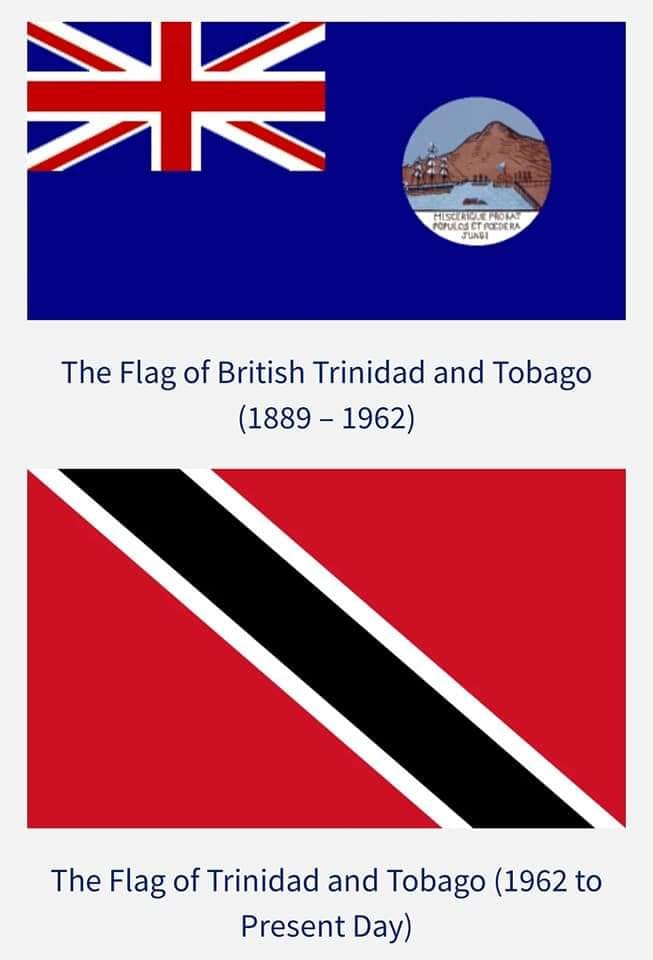
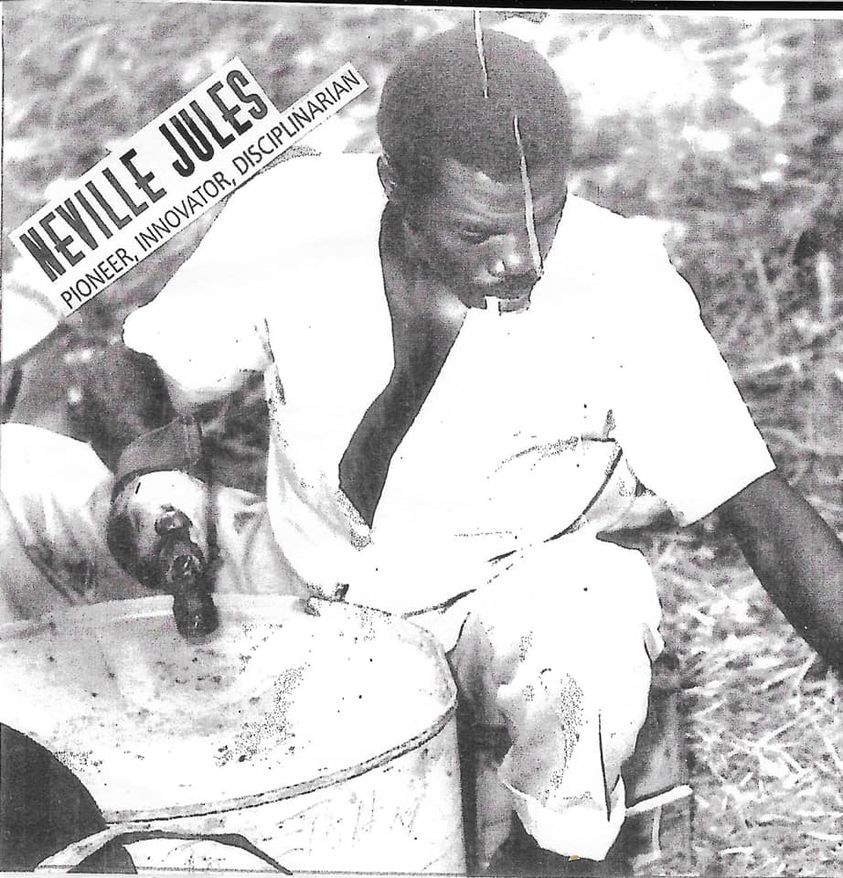
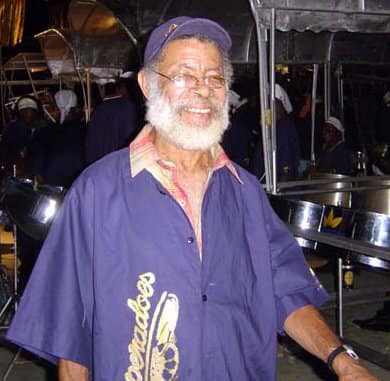
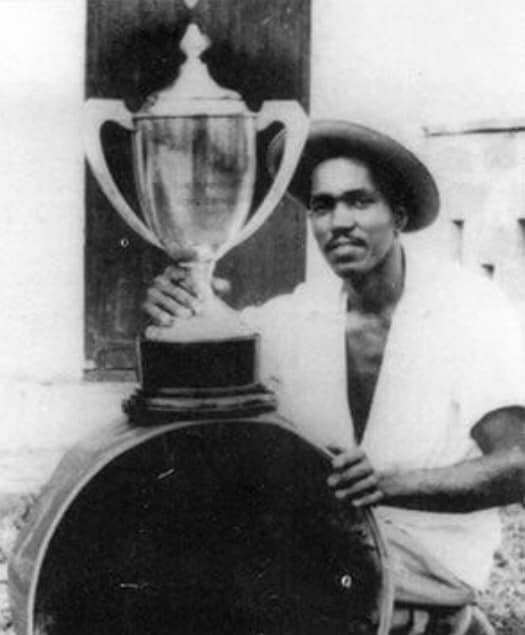

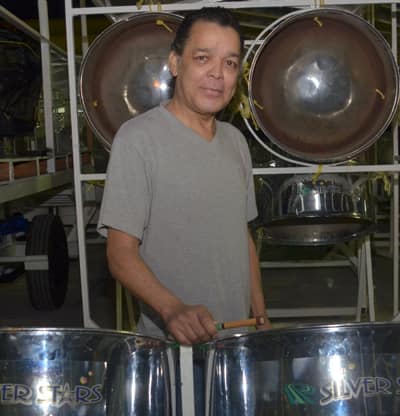


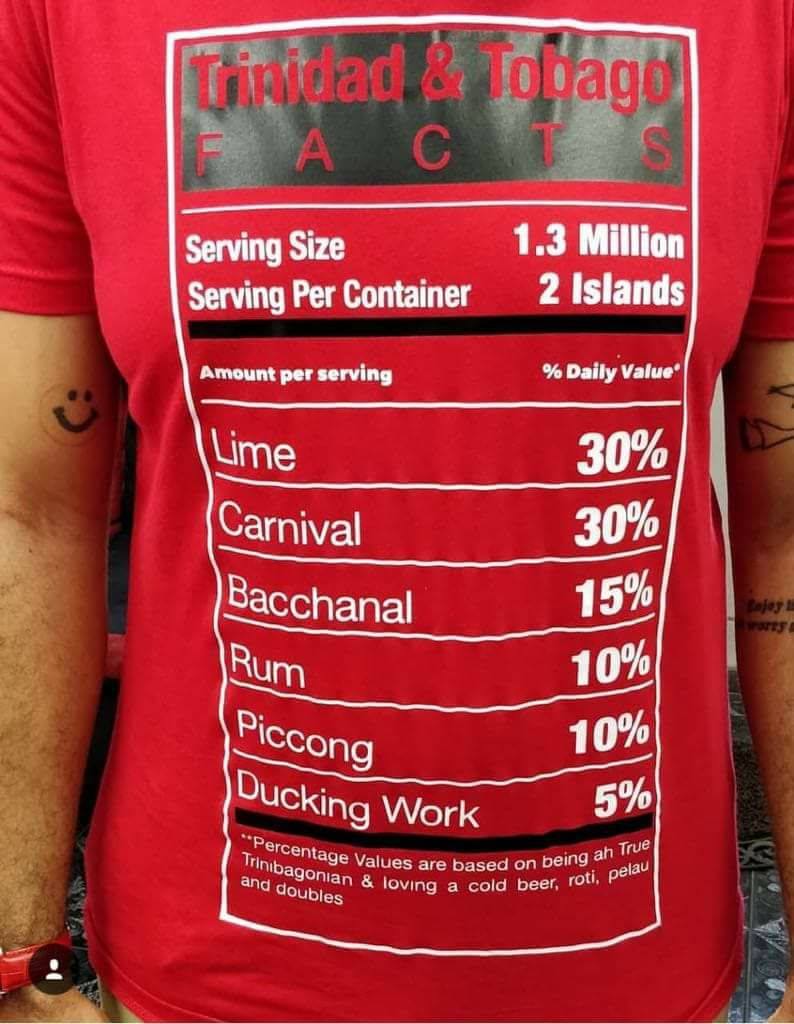
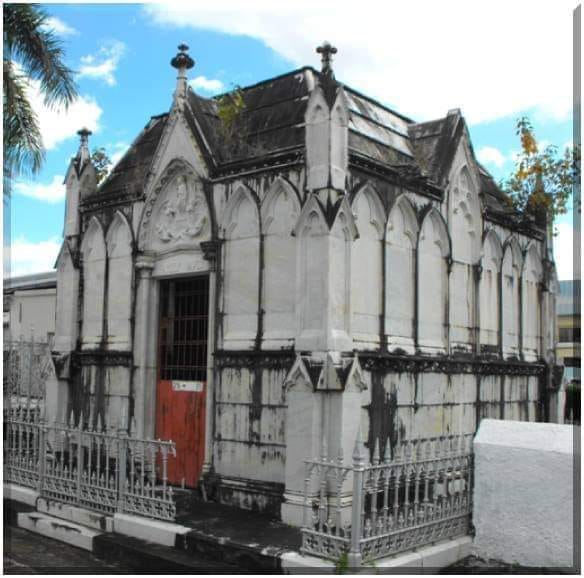

 RSS Feed
RSS Feed